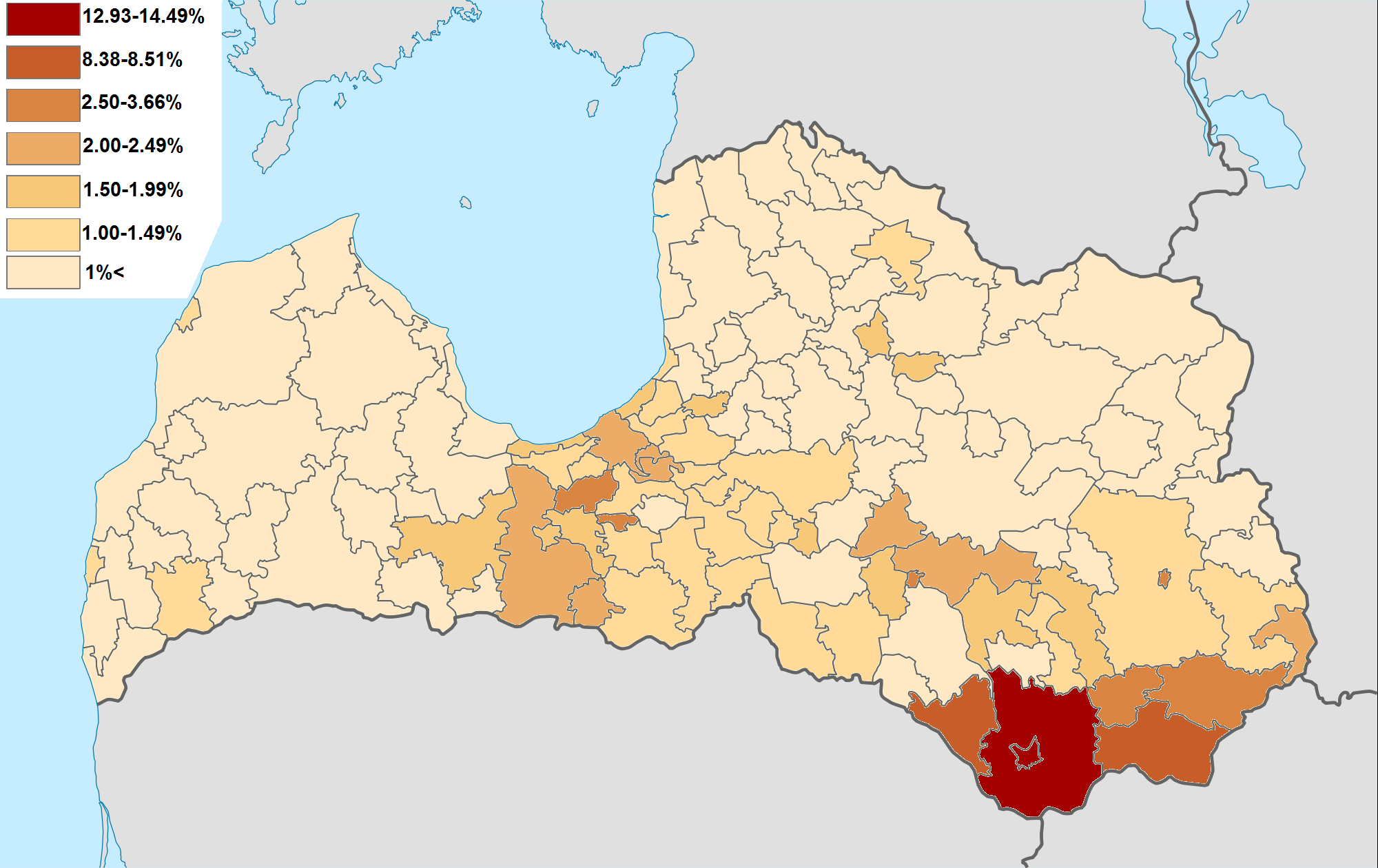|
Latvian Provisional National Council
Latvian Provisional National Council (, LPNP) was a political organization established on November 29, 1917 (November 16 in the Julian calendar) in Valka, Governorate of Livonia by the Latvian Refugee Support Central Committee, Latvian political parties and representatives from the Provisional Land Council of Vidzeme and the Provisional Land Council of Latgale. Due to German army advances, the National Council also met in Petrograd, in secrecy from the new Bolshevik regime. Creation On October 14–17, 1917, Latvian organizations and politicians met in Petrograd and agreed to create a Council that would include 3 representatives from Vidzeme, 3 from Latgale, 3 from Kurzeme, 2 from the Refugee Support Central Committee, 1 from the Baltic Refugee Organization, 2 from Iskolat, 2 from the Soldiers' Union, 1 from the Latvian Farmers' Union, 1 from left-wing parties and 1 from right-wing of the Latvian Social Democrats, as well as 1 from Eser, Radical Democrat and National Democr ... [...More Info...] [...Related Items...] OR: [Wikipedia] [Google] [Baidu] |
Voldemārs Zāmuēls
Voldemārs Zāmuēls (22 May 1872, in Dzērbene parish, Latvia (then Russian Empire) – 16 January 1948, in Ravensburg, Germany (in then French occupation zone)) was a Latvian politician. He held the office of the Prime Minister of Latvia The prime minister of Latvia ( lv, ministru prezidents) is the most powerful member of the Government of Latvia, who presides over the Latvian Cabinet of Ministers. The officeholder is nominated by the president of Latvia, but must be able to obt ... from 27 January 1924 to 18 December 1924. References 1872 births 1948 deaths People from Cēsis Municipality People from Kreis Wenden Democrats Union politicians Prime Ministers of Latvia Deputies of the Constitutional Assembly of Latvia Candidates for President of Latvia University of Tartu alumni Recipients of the Order of the Three Stars Latvian World War II refugees Latvian emigrants to Germany {{Latvia-politician-stub ... [...More Info...] [...Related Items...] OR: [Wikipedia] [Google] [Baidu] |
Poles In Latvia
The Polish minority in Latvia numbers about 51,548 and (according to the Latvian data from 2011) forms 2.3% of the population of Latvia. Poles are concentrated in the former Inflanty Voivodeship region, with about 18,000 in Daugavpils (Dyneburg) and 17,000 in Riga. People of Polish ethnicity have lived on the territory of modern Latvia since the 16th century. In modern Latvia their citizenship status vary: non-citizens of Latvia, as citizens of Poland, or as citizens of Latvia. Demography Mixed marriages are common for the ethnic Poles in Latvia: per cent distribution of males with spouse of different ethnicity was 89%, of females with spouse of different ethnicity was 90% (1990–2007)LR Centr� ... [...More Info...] [...Related Items...] OR: [Wikipedia] [Google] [Baidu] |
Public Broadcasting Of Latvia
Public Broadcasting of Latvia ( lv, Latvijas sabiedriskais medijs, lit=Latvian Public Media – LSM) is a publicly funded radio and television organization operated by both of Latvia's public broadcasters – Latvian Television and Radio Latvia. LSM provides news, analysis, culture, entertainment and new experimental content, produced mainly by Latvian Television and Radio Latvia, and by the portal’s editorial personnel. The site was launched on 3 February 2013. LSM content is also available in Russian and English. News content in English was made available from 1 July 2014. A unified news portal was one of the steps planned in a much wider convergence of both public broadcasters. In 2012, Latvia’s National Electronic Media Council (NEMC) approved the concept of creating a new Latvian public service media organization. NEMC members had to decide from 3 different scenarios: * partial convergence (institutional independence, but both media to engage in joint projects); * ... [...More Info...] [...Related Items...] OR: [Wikipedia] [Google] [Baidu] |
De Facto
''De facto'' ( ; , "in fact") describes practices that exist in reality, whether or not they are officially recognized by laws or other formal norms. It is commonly used to refer to what happens in practice, in contrast with '' de jure'' ("by law"), which refers to things that happen according to official law, regardless of whether the practice exists in reality. History In jurisprudence, it mainly means "practiced, but not necessarily defined by law" or "practiced or is valid, but not officially established". Basically, this expression is opposed to the concept of "de jure" (which means "as defined by law") when it comes to law, management or technology (such as standards) in the case of creation, development or application of "without" or "against" instructions, but in accordance with "with practice". When legal situations are discussed, "de jure" means "expressed by law", while "de facto" means action or what is practiced. Similar expressions: "essentially", "unofficial", " ... [...More Info...] [...Related Items...] OR: [Wikipedia] [Google] [Baidu] |
Arthur Balfour
Arthur James Balfour, 1st Earl of Balfour, (, ; 25 July 184819 March 1930), also known as Lord Balfour, was a British Conservative statesman who served as Prime Minister of the United Kingdom from 1902 to 1905. As foreign secretary in the Lloyd George ministry, he issued the Balfour Declaration of 1917 on behalf of the cabinet, which supported a "home for the Jewish people" in Palestine. Entering Parliament in 1874, Balfour achieved prominence as Chief Secretary for Ireland, in which position he suppressed agrarian unrest whilst taking measures against absentee landlords. He opposed Irish Home Rule, saying there could be no half-way house between Ireland remaining within the United Kingdom or becoming independent. From 1891 he led the Conservative Party in the House of Commons, serving under his uncle, Lord Salisbury, whose government won large majorities in 1895 and 1900. An esteemed debater, he was bored by the mundane tasks of party management. In July 1902, he succeede ... [...More Info...] [...Related Items...] OR: [Wikipedia] [Google] [Baidu] |

